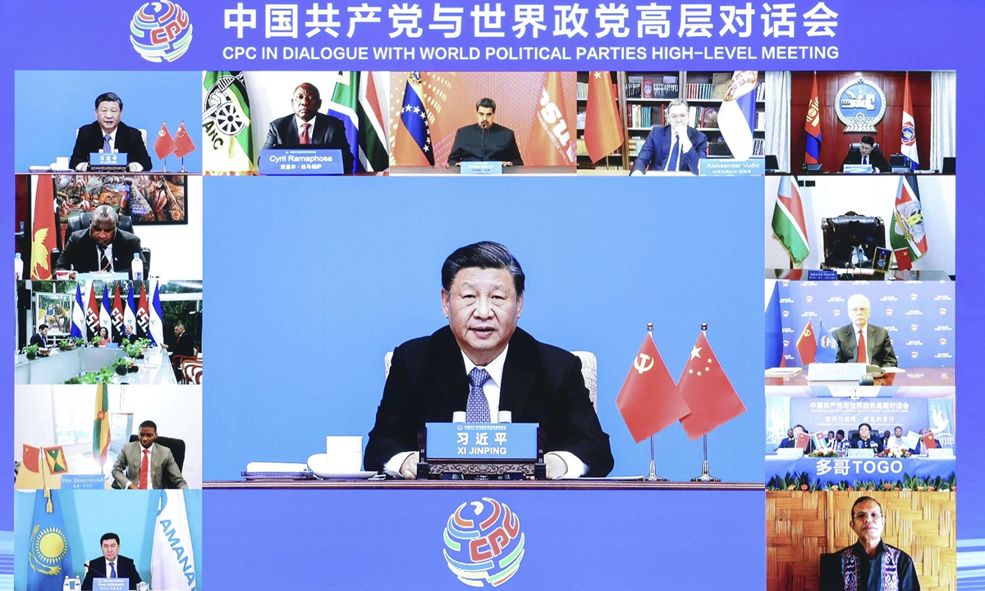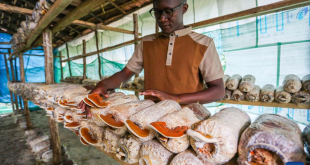By Gerald Mbanda

The world today is characterize by intensifying geopolitical divisions and competing worldviews, China’s Global Civilization Initiative (GCI), introduced by President Xi Jinping in March 2023, offers a compelling alternative grounded in equality, mutual learning, dialogue, and inclusivity.
The GCI emphasizes that each civilization is unique and valuable—a vision formally recognized in June 2024 when the UN unanimously adopted China’s proposal to designate June 10 as the International Day for Dialogue among Civilizations. This platform transcends mere diplomacy; it channels cultural wealth into a global resource for peaceful coexistence.
Nowhere is the resonance of this initiative stronger than in Africa, where rich cultural diversity intersects with a continent-wide quest for self-determined development. China and Kenya recently signed a declaration committing to uphold the GCI’s core values—respecting the diversity of civilizations, enriching people-to-people exchanges, and promoting inclusivity across education, science, and the arts. Their agreement to host joint cultural and tourism seasons in 2025 and a year of China–Africa people-to-people exchanges in 2026 reflect deepening public engagement and shared cultural investment
These collaborations dovetail with longstanding China–Africa ties: since 1963, approximately 24,000 Chinese medical workers have served in 44 African countries, over 67 Confucius Institutes have been established across the continent, and thousands of African students study in China annually.
Simultaneously, think tank forums, youth festivals, and media partnerships are fostering a “China–Africa community with a shared future,” encouraging mutual learning that is as cultural as it is intellectual. Ethiopian scholars, for instance, have praised the GCI for resonating with African philosophies like Ubuntu and for reinforcing values such as harmony, cooperation, and respect.
Civilizational dialogue also carries concrete global implications. At a recent summit in Changsha, China announced that it would remove all tariffs on exports from 53 African nations, aiming to correct a trade imbalance that once saw China holding a $62 billion surplus. This move toward duty-free market access is aligned with the GCI’s ethos of fairness, mutual benefit, and economic respect. During the same meeting, China and 53 African nations called on the U.S. to resolve trade disputes through equal, respectful dialogue—underscoring their shared preference for diplomatic consultation rather than coercion.
The trade initiatives are underpinned by a broader philosophy. China’s GCI evolves from its earlier Belt and Road, Development, and Security Initiatives—together forming a multidimensional framework designed to elevate developing voices and resist civilizational hegemony. Echoing Confucian tenets—“harmony, not sameness”—China and Africa share deep-rooted traditions of pluralism and respect. Their missions run parallel: mutual learning and coexistence serve as antidotes to ideological dominance and cultural overreach.
Strengthening institutional cooperation, both sides are advancing educational, legal, archaeological, and scientific collaboration under FOCAC’s 2025–2027 action plans. Projects range from joint archaeological studies and cultural heritage restoration to legal-judicial forums and state-owned business reform. By promoting such partnerships, China and Africa are anchoring dialogue in tangible outcomes—building cultural bridges with substance.
For Africa, the benefits are multifaceted: support for nation-led development pathways free from ideological strings; access to scholarships, vocational training, and green-tech investments; and enhanced cultural confidence. Work on thirty clean-energy projects and green development under FOCAC further connects the GCI with global sustainability efforts. Youth exchanges, cultural festivals, and joint scientific-language initiatives seed long-term friendship and mutual understanding.
More widely, these trends point to a deeper rebalancing in global governance. China’s emphasis on civilizational equality affirms a vision of world order where no single narrative prevails. As President Xi stressed, civilizations should lift each other forward, not clash—enabling a nuanced, multipolar world of shared growth and respect. When African leaders echo calls for diplomacy and multilateral trade engagement, they endorse an alternative global mindset where dialogue trumps dominance.
To be sure, questions remain. Critics caution that exchanges should not mask power imbalances or impose cultural models. Yet, by establishing clear institutional cooperation, policy transparency, and inclusive forums, China and Africa are charting a credible path. The GCI is not a slogan—it is an evolving framework seeking to embed mutual respect in diplomacy, economics, and culture.
In forging this partnership, China and Africa offer a powerful model for peaceful coexistence. Cultural differences are not fissures but engines of innovation; respectful dialogue is not symbolic but strategic. If other nations adopt similar approaches—fusing symbolic recognition with substantive cooperation—then civilization dialogue can transform from rhetoric into a foundation for global peace and equitable progress. In this shared journey, Africa’s rich heritage and China’s global vision converge toward a world where civilizations, rather than clashing, cocreate the future together.
 Africa -China Review Africa -China Cooperation and Transformation
Africa -China Review Africa -China Cooperation and Transformation
